Israel and Hezbollah: Shadow-boxing with live weapons
- Published
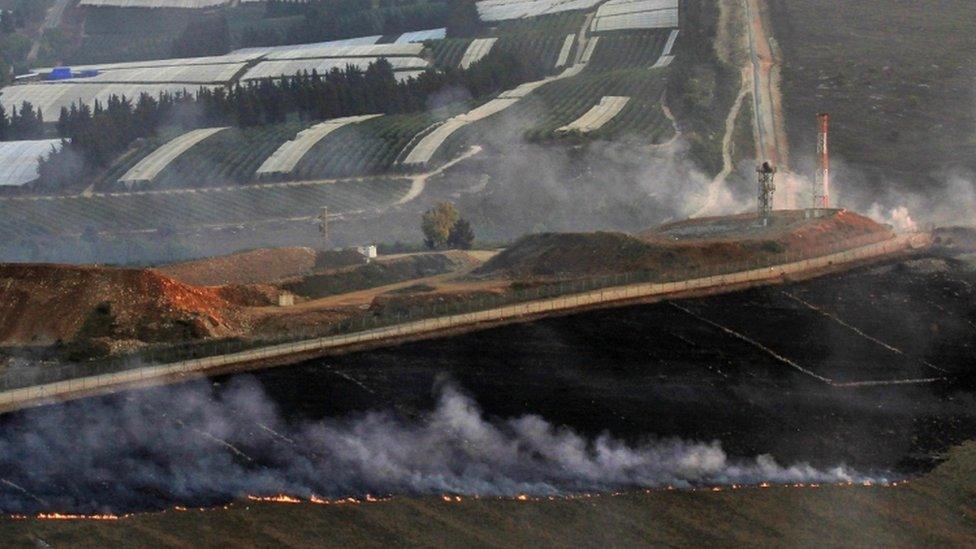
Israel and Hezbollah exchanged fire near the southern Lebanese town of Maroun al-Ras
The most recent clash between Israel and the Hezbollah militant group in Lebanon may or may not be over, but the signs still point to a potentially catastrophic conflict ahead.
Both sides have an interest in halting operations for now. Neither wants a full-scale war. Much will depend upon the Hezbollah reaction to the ruse with which Israel tried to calm this current upsurge.
It was Israel's strike on Hezbollah's power centre - the Dahiya quarter of Beirut - that prompted this cross-border exchange. This was, in the vernacular loved by military analysts, seen as being in "contravention of the rules of the game".
This was the first Israeli strike on the Lebanese capital since a war between Israel and Hezbollah in 2006. Indeed direct confrontations between Israeli and Hezbollah forces in general are relatively rare.
Israel is believed to have targeted a piece of industrial machinery - essentially a large mixer - crucial for manufacturing the propellant for missiles and rockets. This is seen as part of what has been dubbed "the precision project"; an effort by Iran to improve the accuracy and range of existing missiles that it has supplied to its allies in the region, like Hezbollah.
This strike was bound to prompt a Hezbollah response and the Israeli military made the necessary preparations; moving up artillery; cancelling a planned exercise; and reducing the number of vulnerable patrols in the border region.
Hezbollah's response was not slow in coming.
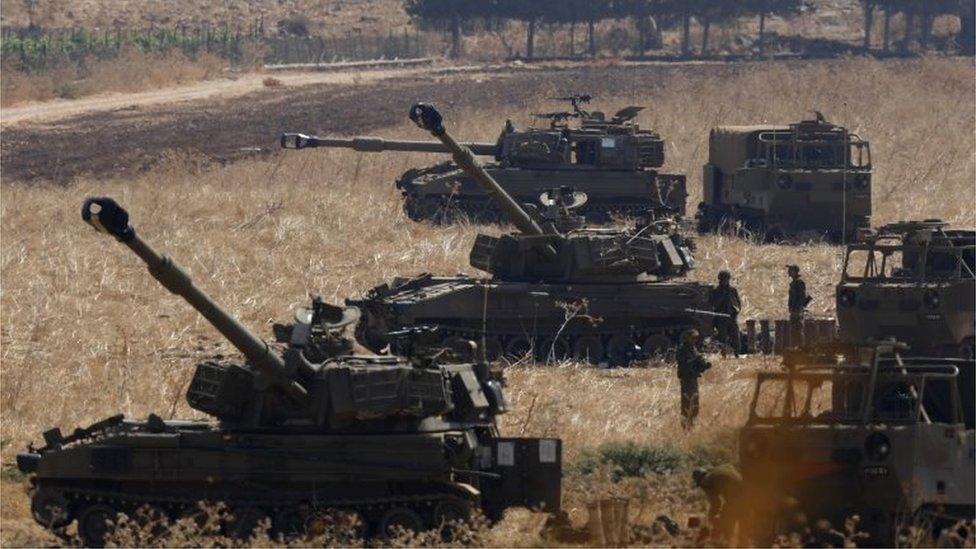
Israel fired some 100 shells into Lebanon in response to the missile attack
A small number of Kornet anti-tank missiles were fired at an Israeli position and an armoured ambulance was hit. Hezbollah was quick to claim success, announcing that it had "destroyed an IDF military vehicle on the Avivim Barracks road killing and injuring those inside."
Israel now says there were no casualties, but initially it mounted what appeared to be a helicopter casualty evacuation, seemingly in retrospect as a ruse to encourage Hezbollah to believe its attack had been successful and thus to buy some time for calm to be restored.
Israel's response to the Kornet fire was limited. A helicopter gunship attacked the area that was the source of the fire and a large number of mainly smoke shells were fired by Israeli artillery.
So will Hezbollah's leader Hassan Nasrallah feel honour has been done or will he seek a further round?
Time will tell but neither Israel nor Hezbollah want escalation now. But the Israelis have questions to answer too.
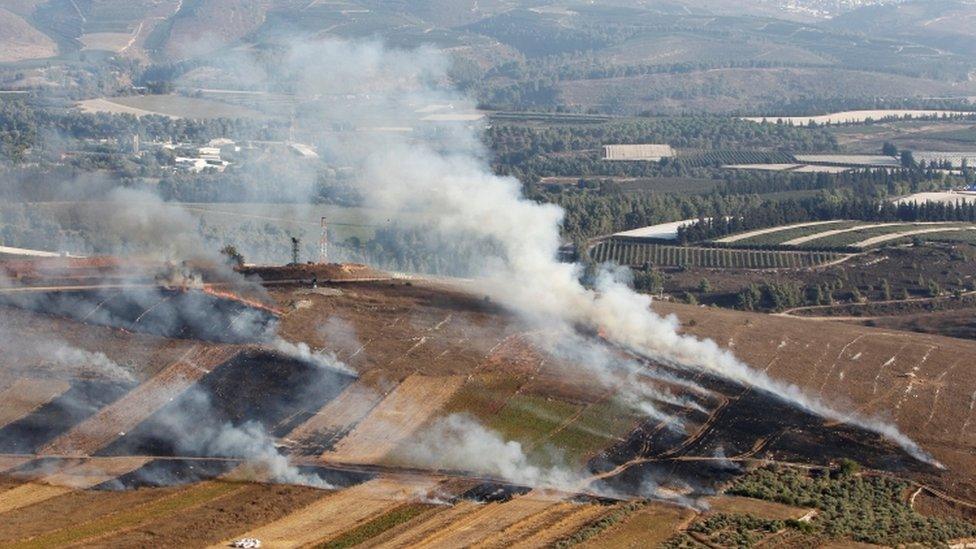
Smoke rises from shells fired from Israel in Maroun al-Ras village
Are they going to seize future opportunities to strike at Hezbollah's Iranian-backed missile programme in Lebanon knowing full well that this breaches the so-called "rules of the game"?
But of course this is not a game and fundamentally the "rules" are only temporary. What is going on here is an undeclared war not just between Israel and Hezbollah, but between Israel and Hezbollah's sponsor, Iran.
In geographical terms this is being fought out across a wide front that now extends from Lebanon and deep into Syria. It is likely even targets in Iraq have been hit by Israeli strikes.
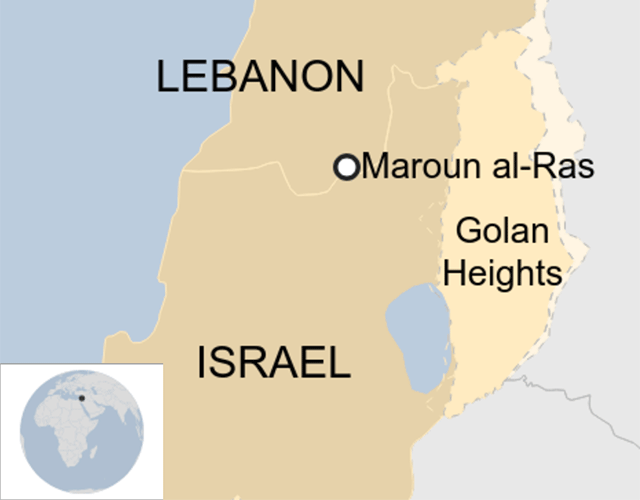

Iran is seeking to make progress in three areas. Firstly it wants to continue the missile supply line it runs to its allies in the region. Secondly it is helping Hezbollah to improve the capability of the missiles that it already has. And thirdly it is seeking to take advantage of the influential position it has achieved, given its backing for the Assad regime in Syria, to establish itself there as a military player, in part, to open up a new front against Israel.
Israel has been consistently striking back at the Iranians and recently says that it foiled an Iranian-backed drone attack into Israel. The Israeli military's intelligence gathering abilities are remarkable. It hits missile convoys, storage depots, drone bases, and industrial sites.
But these are tactical successes. In strategic terms they may slow Iran's designs but there is no indication that Tehran is changing its fundamental approach.
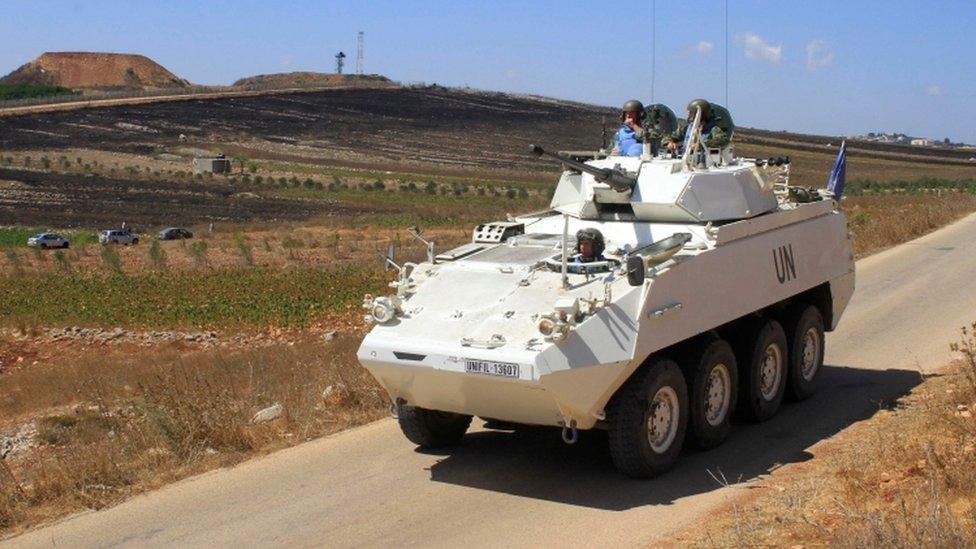
United Nations peacekeeping forces patrol a road near the Israeli-Lebanese border
Outside actors seem unable to alter Tehran's direction of travel. The US is clearly in no position to do so. And assurances from Moscow that it will persuade the Syrians to contain the advance of Iran and its proxies, have proved illusory.
It is instructive that the tempo of Israeli air attacks increased significantly in the aftermath of the June meeting between the National Security Advisers of Israel, Russia and the United States.
So the latest skirmish in this undeclared war may be over, but the struggle continues. And the risk of conflagration only gets closer.
It is like one of those old-fashioned movies in which a bomb is discovered with a long-burning fuse, which the hero gets to snuff out with moments to spare. The fuse for this impending conflagration is longer; but nobody knows quite how long.
The fuse has been snuffed out now on multiple occasions. But each time when it is re-lit, it gets ever shorter.
- Published1 September 2019
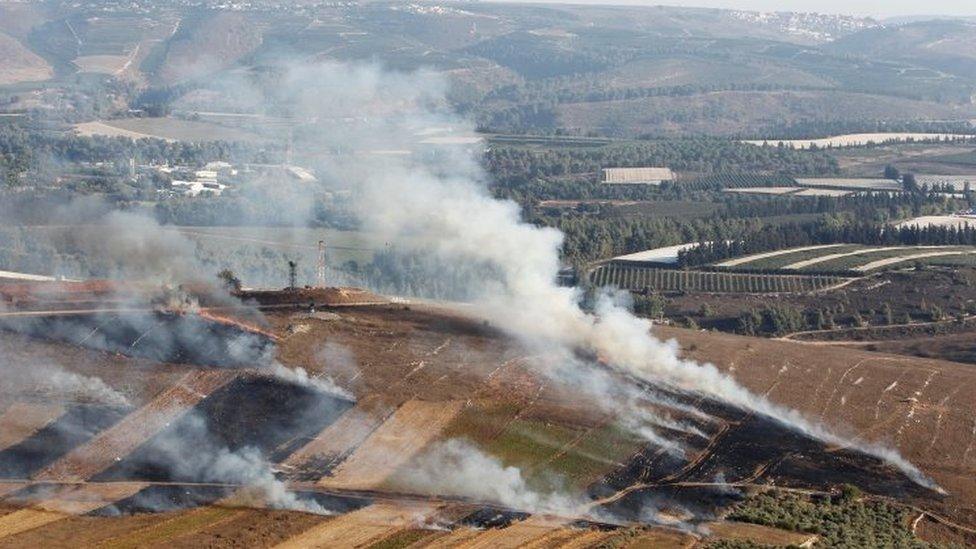
- Published27 August 2019
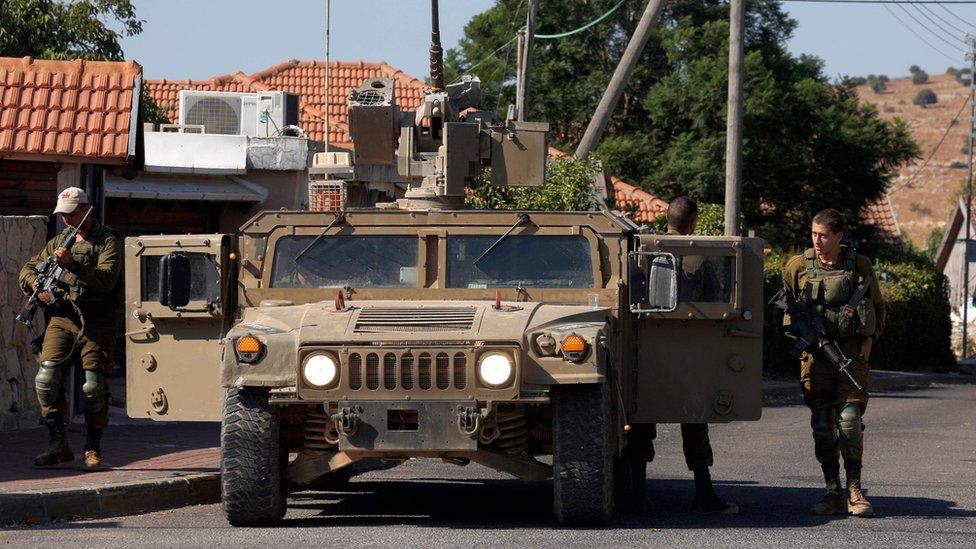
- Published21 June 2019
- Published7 July 2019
